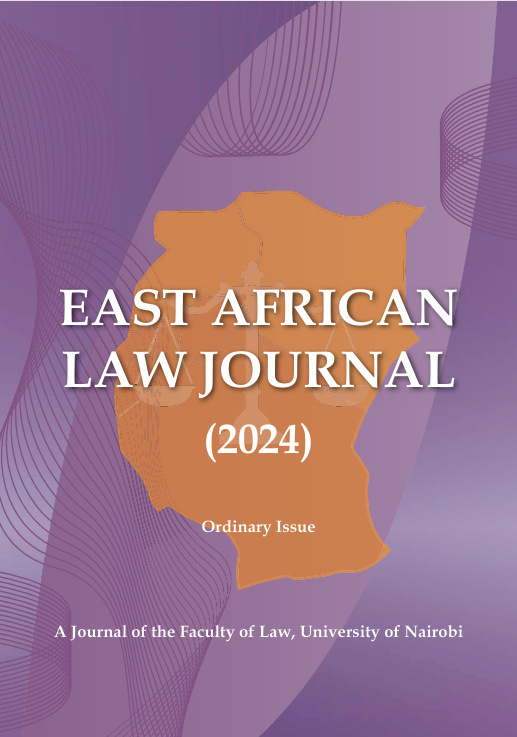MAINSTREAMING CROSS-BORDER ARBITRATION AT THE EACJ: ROLE OF INTELLECTUAL PROPERTY IN REGIONAL INTEGRATION
Abstract
Although the East African Court of Justice (EACJ) has arbitral jurisdiction over international commercial disputes, little to no attention has been paid to how this jurisdiction can be effectively harnessed for the resolution of cross-border intellectual property (IP) disputes among East African Community (EAC) member states. This paper acknowledges and appreciates that various communities in the EAC bloc share cultural values, practices and beliefs which constituted shared indigenous knowledge as an intellectual property right. While EAC countries like Kenya have legislation on IP including the Kenyan Traditional Knowledge and Cultural Expressions Act, 2016, these laws fail to sufficiently address how to resolve disputes that emerge outside the national territorial jurisdiction. Further, there are no uniform criteria for determining issues like cross-border access and benefit sharing (A&BS), promoting sustainable development, social equity and cultural diversity which may pose challenges when citizens of EAC member states seek redress for any infringement of individual or collectively owned IP rights. A casual view of EACJ’s Reports demonstrates the untapped potential of the EACJ as a regional adjudicator of cross-border disputes. On the one hand, it may be hypothesized that EAC member states prefer and trust national as opposed to judicial institutions. On the other hand, the lack of data on the number of intellectual property disputes resolved at the EACJ through arbitration, if any, points to legal, regulatory, policy and jurisprudential gaps which limit the capacity of the EACJ to be a reliable and effective regional dispute resolution mechanism for IP disputes. Therefore, this paper makes a case for an expansive application of, the reconceptualization and redefinition of the scope, nature and extent of the arbitral jurisdiction of the EACJ to promote regional integration through the amicable resolution of IP disputes within the EAC bloc.






